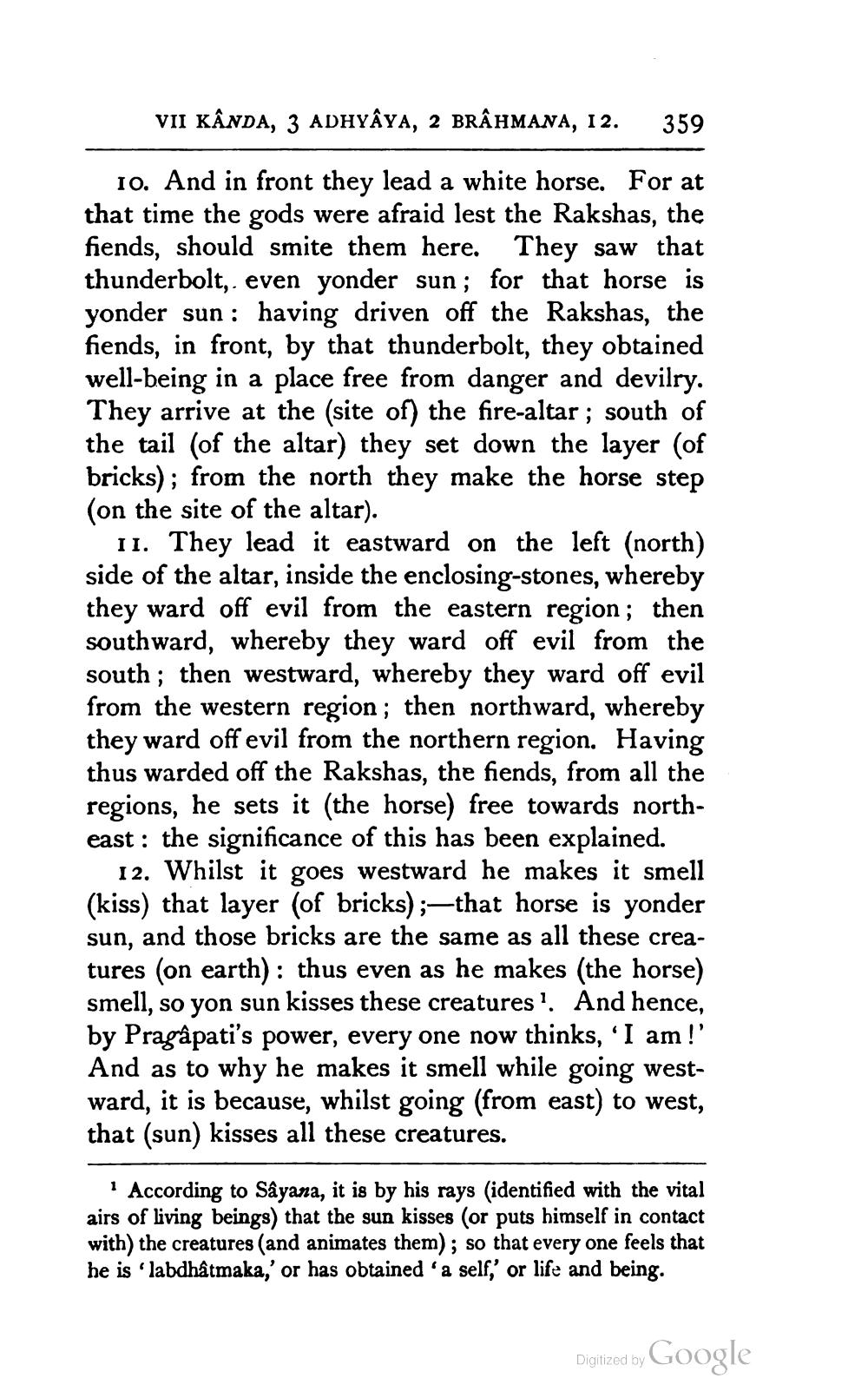________________
VII KÂNDA, 3 ADHYÂYA, 2 BRÂHMANA, 12.
359
10. And in front they lead a white horse. For at that time the gods were afraid lest the Rakshas, the fiends, should smite them here. They saw that thunderbolt, even yonder sun; for that horse is yonder sun: having driven off the Rakshas, the fiends, in front, by that thunderbolt, they obtained well-being in a place free from danger and devilry. They arrive at the (site of) the fire-altar; south of the tail (of the altar) they set down the layer (of bricks); from the north they make the horse step (on the site of the altar).
11. They lead it eastward on the left (north) side of the altar, inside the enclosing-stones, whereby they ward off evil from the eastern region; then southward, whereby they ward off evil from the south; then westward, whereby they ward off evil from the western region; then northward, whereby they ward off evil from the northern region. Having thus warded off the Rakshas, the fiends, from all the regions, he sets it (the horse) free towards northeast: the significance of this has been explained.
12. Whilst it goes westward he makes it smell (kiss) that layer (of bricks);—that horse is yonder sun, and those bricks are the same as all these creatures (on earth) : thus even as he makes (the horse) smell, so yon sun kisses these creatures ?. And hence, by Pragâpati's power, every one now thinks, 'I am!' And as to why he makes it smell while going westward, it is because, whilst going (from east) to west, that (sun) kisses all these creatures.
According to Sâyana, it is by his rays (identified with the vital airs of living beings) that the sun kisses (or puts himself in contact with) the creatures (and animates them); so that every one feels that he is 'labdhâtmaka,' or has obtained a self, or life and being.
Digitized by Google




